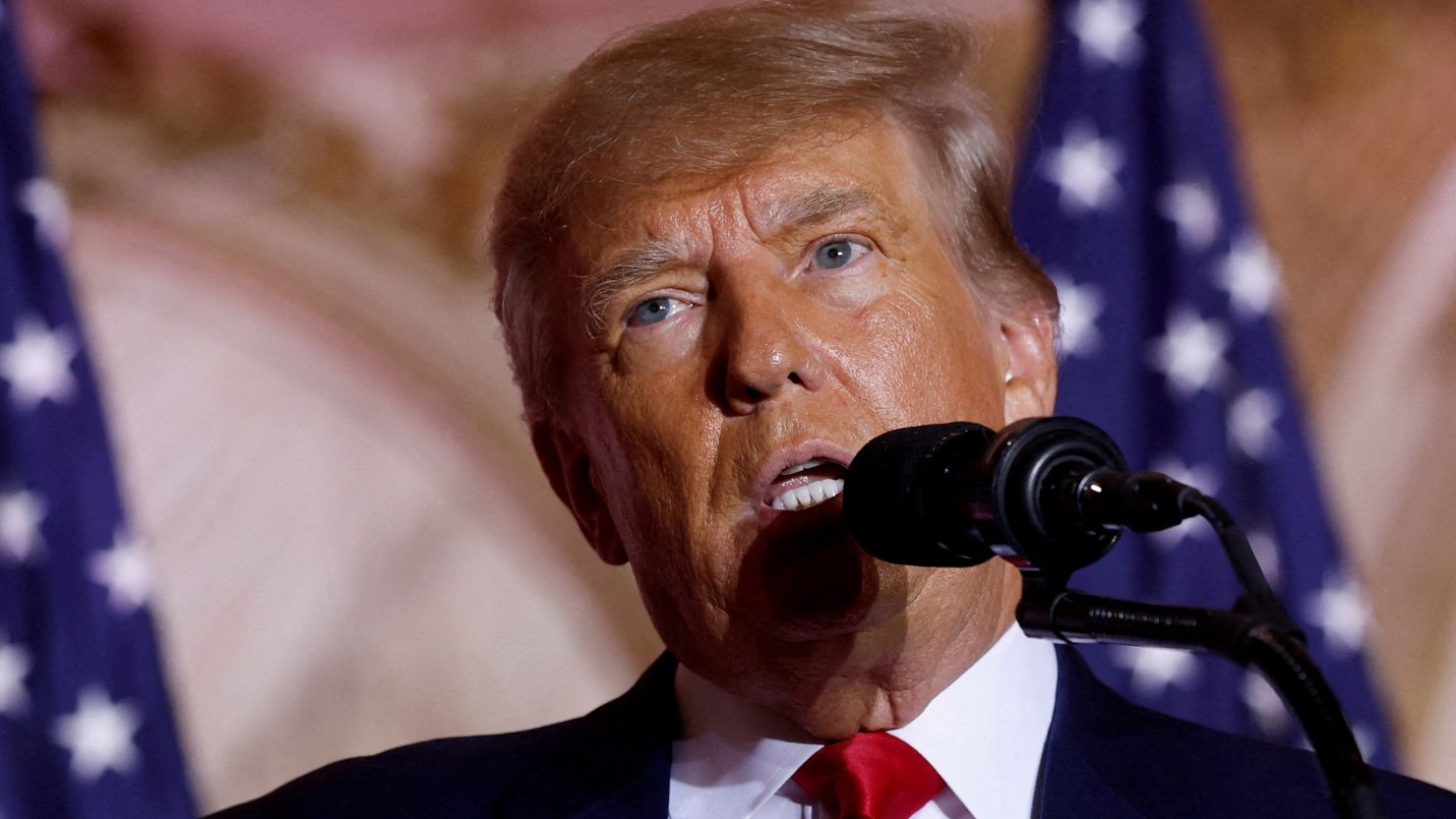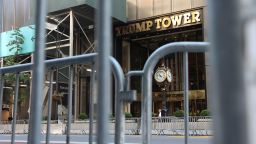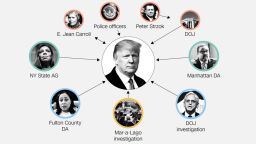Former President Donald Trump does not plan to appeal to the Supreme Court a lower court order that put an end to the special master review of documents seized from his Mar-a-Lago estate, a source familiar with the matter tells CNN.
Last week, a federal appeals court ruled that a lower court judge had erred when she ordered the appointment of a third party, or special master, to review about 100 classified documents that investigators found when they searched his Florida home in August.
The former president’s legal team previously argued that they needed an outside expert to decide whether any of documents found at Mar-a-Lago could be privileged. They had until Thursday to appeal the decision to the Supreme Court.
On Thursday afternoon, the US 11th Circuit Court of Appeals issued the mandate that puts its ruling into effect, meaning the time period Trump had been given to seek an order pausing the ruling has expired.
The Trump team’s decision not to appeal would mark the end of a monthslong legal battle over whether the review should take place and will allow the Justice Department to push forward in their investigation into Trump’s retention of classified documents.
Trump has not fared well as of late at the Supreme Court, even though it includes three of his nominees.
Last month for example, the court cleared the way for the Internal Revenue Service to release Trump’s tax returns to a Democratic-led House committee. There were no noted dissents to the order. The court in October declined to intervene in a separate dispute over the documents marked classified that were seized at his Florida estate.
Trump, meanwhile, recently called for the termination of the Constitution to overturn the 2020 election and reinstate him to power in a social media post.
Appeals court dismantled Trump’s arguments
Thursday’s decision comes after the 11th US Circuit Court of Appeals issued a blistering opinion favoring the Biden Justice Department and reversed US District Judge Aileen Cannon’s order that called for a “special master” to determine which documents should be off-limits to the investigators. The three-judge panel had said Cannon, an appointee of Trump’s, should not have intervened in the first place.
“The law is clear,” the appeals court wrote. “We cannot write a rule that allows any subject of a search warrant to block government investigations after the execution of the warrant. Nor can we write a rule that allows only former presidents to do so.”
With the 11th Circuit issuing its mandate on Thursday afternoon, the case now travels back to Cannon, who has been instructed by the appeals court to dismiss Trump’s lawsuit.
The 11th Circuit’s opinion – which was issued jointly by the three-judge panel made up of Republican nominees, including two of Trump’s – dismantled Trump’s arguments for why a special master was necessary. The court said that only in extraordinary circumstances should courts intervene in Justice Department investigations that are still in their early stages, and that standard had not been met.
“This restraint guards against needless judicial intrusion into the course of criminal investigations – a sphere of power committed to the executive branch,” the court wrote.
The appeals court said that its new ruling would take effect Thursday unless a party in the case successfully sought an order – known as a stay – pausing the ruling from going into effect while it is appealed.
Rebuke of Judge Cannon’s deference to Trump
The appeals court opinion was a stinging rebuke of how Cannon inserted herself into the dispute. In addition to reversing the order, the appeals court instructed her to dismiss the entire case.
The appeals court took aim at the idea, hinted at in her order appointing the special master, that Trump deserves special treatment because he is a former president.
“It is indeed extraordinary for a warrant to be executed at the home of a former president – but not in a way that affects our legal analysis or otherwise gives the judiciary license to interfere in an ongoing investigation,” the court said.
To create that “special exception,” the 11th Circuit wrote, “would defy our Nation’s foundational principle that our law applies ‘to all, without regard to numbers, wealth, or rank.’”
Trump had sought the special master in the weeks after the August search, securing the court order from Cannon. Judge Raymond Dearie, a senior judge who sits in Brooklyn, had been tasked by Cannon with leading the review of the thousands of documents that remained.
During oral arguments in the 11th Circuit case, Trump’s attorney James Trusty said that only about 900 of those documents were in dispute. Trump’s legal team contends the documents are his personal records or privileged and should be kept outside the scope of the investigation.
Lawyers for the Justice Department argued that the special master process stood to drag out for several weeks, if not months, impeding the probe into the documents. Prosecutors said that without access to the other documents, they could not question witnesses about the materials that had been found intermixed with classified records at Mar-a-Lago.
The Justice Department effort is now being led by special counsel Jack Smith, who was appointed last week to helm that probe and another investigation into efforts to reverse Trump’s 2020 election loss that could implicate the former president and current 2024 White House candidate.
This story has been updated with additional details.








